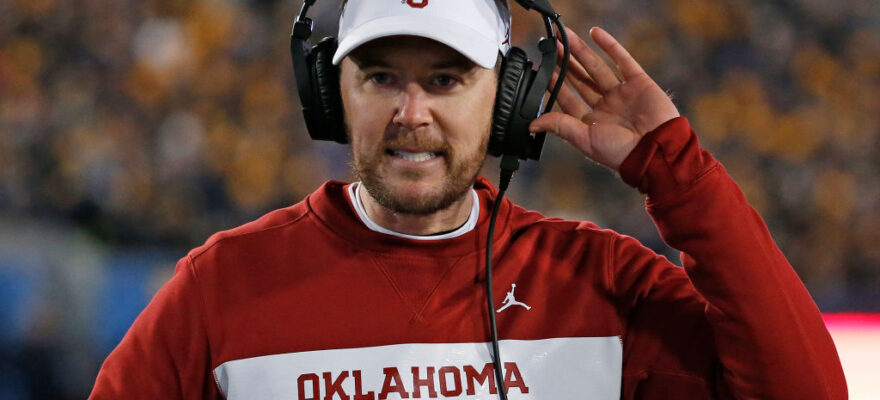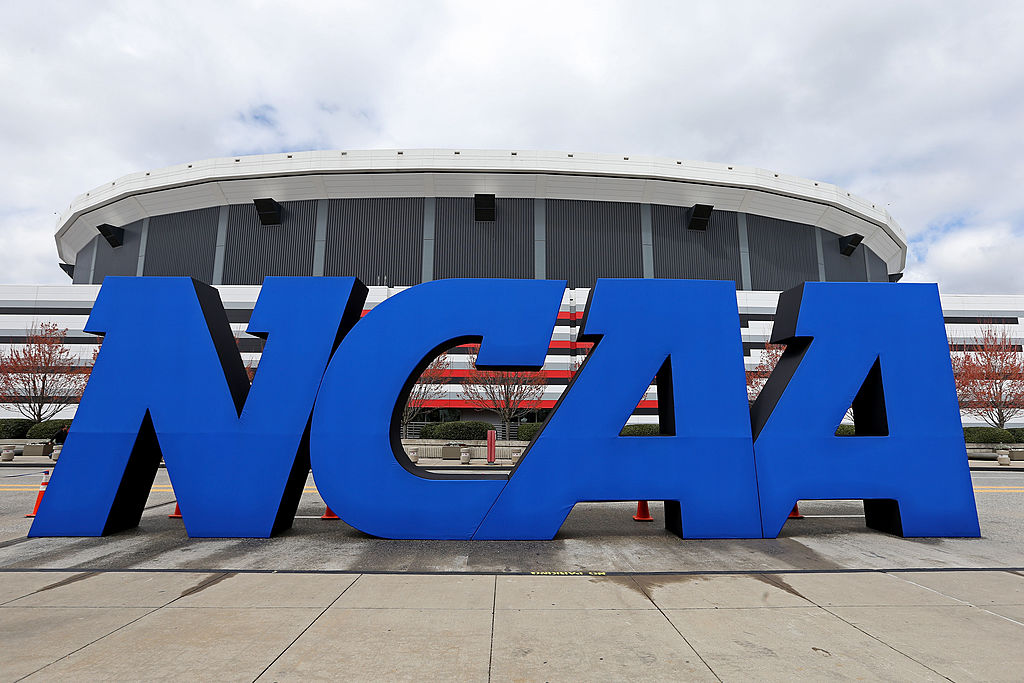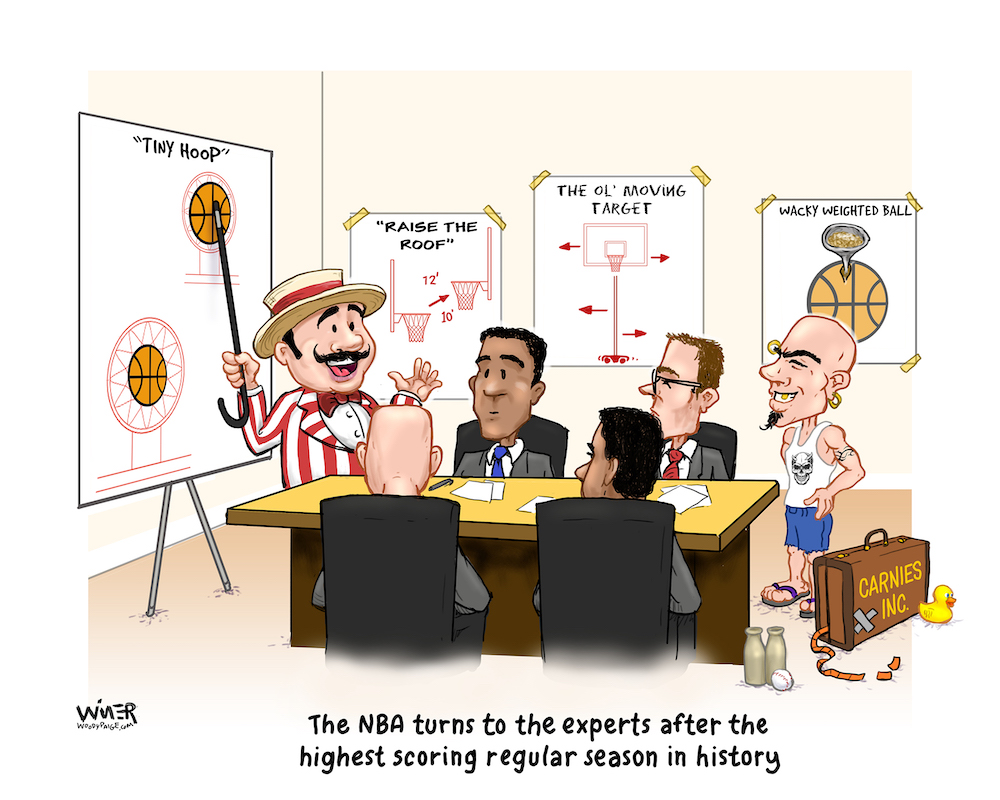If you’re surprised, you really haven’t been paying close attention.
Okay, so the timing of Oklahoma and Texas announcing their departure from the Big 12 is a little bit of a surprise. Most figured it wouldn’t happen for a couple more years, closer to the time that the conference’s TV deal was set to expire in 2025. But you could count on one hand the number of close observers who truly believed that the two marquee schools that remained in the fragile league (from the 10 that emerged after the first round of conference realignment a decade ago) would actually remain long term.
That was never going to happen.
Yet now we have a bunch of pundits acting shocked and talking about the “seismic shift” in college sports that will result when the Sooners and Longhorns join the Southeastern Conference…as if that will be the final score. It won’t be.
This isn’t about any sort of singular moment or event. OU and UT just took the next step in the professionalization of what has been college sports. There’s much more to come.
It’s been happening right under our noses.
First, we’ve had the growth of these ridiculous, bloated salaries currently getting paid to college football and basketball coaches. Some of these guys are already making as much or more than their counterparts in the pros.
Next came college sports free agency, in the form of the “Transfer Portal” and the freedom for players to move from school to school on a whim.
Then came “Name, Image and Likeness” and the freedom for players to get paid (not from the schools, but from boosters, etc.). High school talent can now go to the highest bidder. It won’t be long before there’s some sort of high school player draft, along with better organization for these paychecks, so that the quarterbacks can still make a million a year (like Alabama’s Bryce Young is already getting) but the offensive lineman who protect him can also get a nice cut.
A “college” football players union is on the horizon, complete with collective bargaining and all that comes with it. Patches on the jerseys aren’t far away, either. Imagine the “Mutual of Omaha Cornhuskers” or the “AFLAC War Eagles” or the “Ford Wolverines.” That’s coming, too.
The good news for the universities is that these guys won’t need scholarships anymore.
And they’ve already started taking about what an expanded college football playoff will look like.
A lot like the NFL Playoffs most likely.
Meanwhile, the NCAA sees it’s authority over the big football schools all but evaporating.
What all this is leading up to is a big break up. On one side will be the NCAA and the remaining member schools, and on the other, a semi-professional (which really means professional in pretty much every way) or de facto minor league for football, comprised of what used to be the “Power Five” college programs. The SEC, the Big 10, the Pac 12 and the ACC – along with Notre Dame and the remnants of the Big 12 – will, sooner rather than later, all get together, officially break away from the NCAA, form their own Super League and take their college football playoff money with them. Let the TV rights bidding war begin.
At that point, it won’t matter one tiny bit if Oklahoma and Texas had previously been in the Big 12 or the SEC. They’ll all be one, big happy (and rich) football family.
It remains to be seen how all this will impact college basketball. That’s going to be a much trickier deal to navigate, since the NCAA tournament is still the biggest money maker in college sports. Maybe the NCAA tells the Super League members to take a hike and go do their own thing on the court, too. That would be interesting.
In truth, the emergence of the Super League is probably what is best for college sports. What we have now is a mess of inconsistent rules, grossly uneven payouts and badly tilted playing fields. Once the biggest programs break away and leave the NCAA fold, the organization, which is made up of all the other institutions (including those that still value academics and all that) can get back to overseeing all the rest of the programs that still play the games with college student-athletes and not professionals.

The revamped NCAA could promote the remaining bowl games (ones that don’t get enveloped by the new super league) and maybe even have their own playoff, where programs like Cincinnati, Boise State, Houston, Wyoming, UCF, BYU and a host of others could have a fighting chance.
That would be pretty cool, actually.
If we’ve proven one thing as consumers, it’s that we can’t get enough football in America. So having the NFL, the XFL (in the spring) and the SEC/Super League (they’ll come up with a better name than that) AND actual college football will be just fine. There’s plenty of room. There’s no such thing as too many playoff games if you’re a player, a fan or most importantly, a sponsor.
So while the current uproar over OU and Texas leaving the Big 12 is “breaking news” to some, it’s really just another step toward the inevitable. The professionalization of the game generations have enjoyed more precisely because it wasn’t the NFL.
More from The Woody Paige Sports Network:
- Woody Paige: That time I played blackjack with Michael Jordan in Monte Carlo
- Atlanta Falcons lose by accidentally scoring a touchdown
- John Elway’s 7 best moments as General Manager of the Denver Broncos
- Super Bowl odds 2022: Tom Brady and Buccaneers among Super Bowl 56 favorites
- Denver Broncos favored to land Aaron Rodgers via trade
- Woody Paige: Broncos need to make offer for Aaron Rodgers the Packers can’t refuse
- Woody Paige: Broncos QB competition between Lock, Bridgewater (and Rodgers?) begins
- Cale Makar signs six-year, $54 million contract extension with Avalanche



















